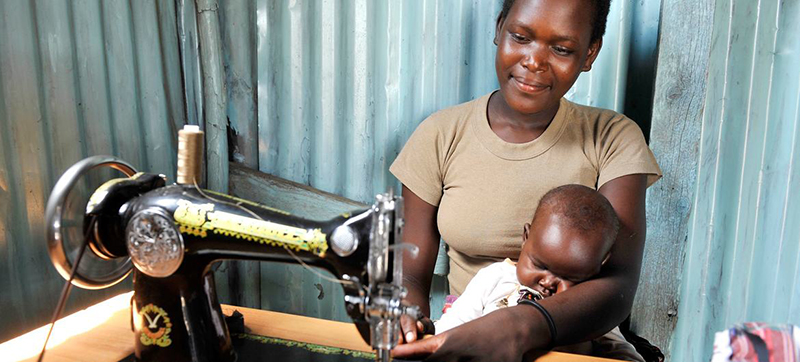 ILO
ILO Collective bargaining in the workplace, essential for global recovery: ILO
New York: In the fast-changing world of work, the UN International Labour Organization (ILO) highlighted on Thursday just how important dialogue between workers and management is to the global post-pandemic recovery – and to keeping people’s wages fair.
After two years of COVID-19 lockdowns and amid increasing pressures on the classic “9 to five” business model - from zero-hours contracts to telework - ILO Director-General Guy Ryder insisted on Thursday that voluntary negotiations known as collective bargaining had proved their worth.
“Workers want to keep their heads above the water, as prices rise, as they are right now, and they want to ensure workplace safety and secure the paid sick leave that has proved so critical over the last two years,” he told journalists in Geneva. “Employers for their part have welcomed agreements that have allowed them to retain skilled and experienced workers, so that they could restart, recover and rebound.”
He added: “The higher the percentage of employees covered by collective agreements, the lower the wage inequality. And the more equality and diversity there is likely to be in the workplace.”
Staying afloat
According to a new report by the UN agency, over one in three employees in 98 countries, currently have their wages, working hours and other professional conditions set by collective agreements.
But there is a considerable variation across countries, ILO said, ranging from over 75 per cent of workers having a collective agreement in many European countries and Uruguay, to below 25 per cent, in around half the countries where data was available.
At the height of the COVID-19 pandemic, ILO’s Social Dialogue Report 2022 indicated that collective bargaining agreements had helped to protect people’s jobs and income.
“Collective bargaining has played a crucial role during the pandemic in forging resilience by protecting workers and enterprises, securing business continuity, and saving jobs and earnings,” Mr. Ryder said, noting that joint accords had also helped to allay the concerns of millions of workers by boosting occupational safety and health in the workplace, together with paid sick leave and healthcare benefits.
Flexible working arrangements and leave provisions were negotiated so that workers, particularly women, could balance work with additional care responsibilities relating to school closures or to sick family members,” he said. “And workers on temporary work had their contracts extended or converted to permanent ones so that they could maintain their earnings.”
New hybrid reality
After two years of upheaval in the workplace caused by the coronavirus, post-pandemic collective agreements have now evolved to reflect the new realities of working from home and other “hybrid” work practices, the ILO Director-General maintained.
“Agreements are already focusing on agreeing equal opportunity, the integration of on-site and remote work practices, re-regulating working time to a right to disconnect and addressing shared concerns of workers and employers over cybersecurity and of data privacy,” he said, in an appeal to more countries to embrace dialogue between workers’ organizations and employers.
“There are very good reasons to strengthen the institutions that facilitate collective bargaining,” he continued. “Employers and workers’ organisations need to be strong to ensure the legitimacy of the agreed solutions, and in light of the proliferation of diverse forms of work, we need to ensure the effective recognition to the right to effective collective bargaining for all workers in need of protection.”
Support Our Journalism
We cannot do without you.. your contribution supports unbiased journalism
IBNS is not driven by any ism- not wokeism, not racism, not skewed secularism, not hyper right-wing or left liberal ideals, nor by any hardline religious beliefs or hyper nationalism. We want to serve you good old objective news, as they are. We do not judge or preach. We let people decide for themselves. We only try to present factual and well-sourced news.







